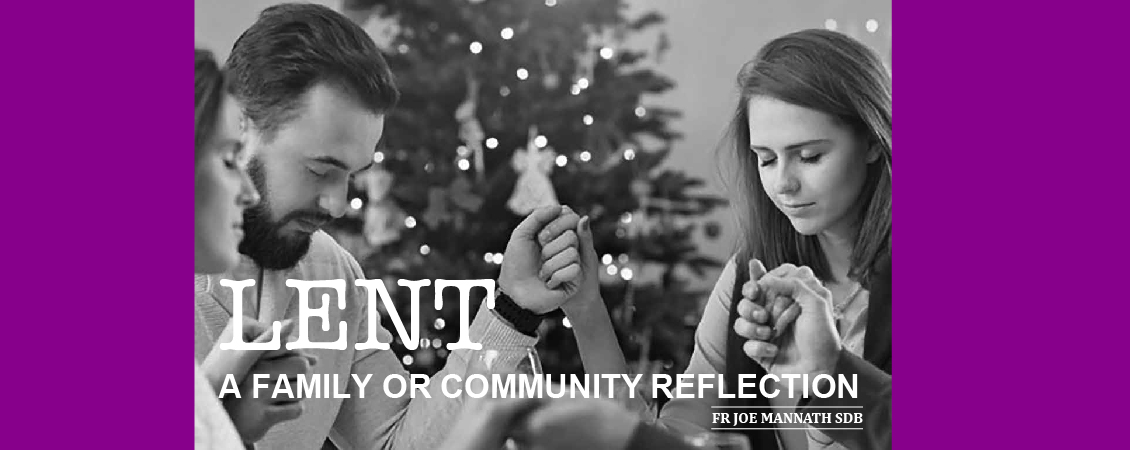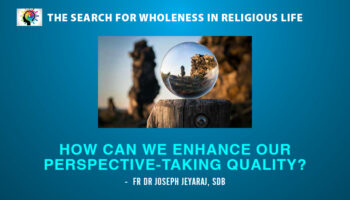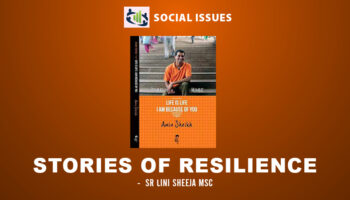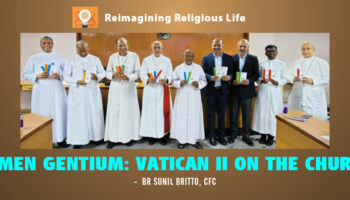Here is a reflection questionnaire for personal use or for sharing with family or religious community.
If done in community, each one will need a copy. Time needed will be between thirty and sixty minutes.
Introduction
Jesus did not impose on his followers any special diet. The only prayer he taught was the Our Father. He did not ask us to put up expensive buildings nor prescribe costly vestments or vessels for praying.
He called us—and even those of other faiths know this—to a life of love, of service, of forgiveness. We will be judged one day on how we loved and shared, not on where we prayed, or what diet we followed, or how we dressed. What Jesus did, and what He insisted on, is pretty well known to all, including persons of all faiths.
What did Jesus bring us?
Use this Reflection Questionnaire to see how you understand and live Lent and Easter. If any question is not relevant for you or your group, reflect on questions of your own, e.g., Are we living our marriage in the way God wants? Are we raising our children in a Christ-like manner? Or: Is the way I exercise my role as religious superior helping the community to live as Jesus lived and taught? Or: Is the way I am practicing my profession in line with Jesus’ teachings? Am I honest and incorrupt?
If what we call “religion” or “faith” does not make us better people, it serves no purpose. In fact, it can even make us worse—as, for instance, when religion is used to promote division, bigotry or hatred or indifference to the sufferings of people.
Jesus did not teach that sort of “religion.” In fact, some Christian scholars even say that Jesus did not “found” a “new religion,” but showed us how to live, how to relate to God and to one another.
Being a follower of Jesus is not just a question of saying a few prayers or going to a building called “church” instead of temple or mosque, or taking part in a particular form of common worship. No! Just like being married or being a mother or father, it is a loving, full-time commitment. If real, it affects all areas of life. If we want to summarize our Christian faith in one sentence, it is about becoming Christlike, or, since we have not personally met the historical Jesus, it means becoming like the most Christ-like (loving, genuine, compassionate, just) human beings we have known.
May Lent and Easter help towards that transformation.
Fidelity or Betrayal?
What is holding me back from a truly joyful life? From becoming the best version of myself? From being a healer and a bearer of joy?
If I look honestly, I will find dark spots that need sweeping, neglected areas that need cultivation, weeds that choke the good seed, destructive habits scuttling my happiness and doing harm to others.
Want examples? Gossip. Grumbling. Words and actions prompted by jealousy. Greed. Ingratitude. Ill-treatment of subordinates. Addictions. Divisions stemming from the lust for power and money.
Further, I may find that I am committing a bigger “crime”—wasting my life on trivialities instead of doing the good I can; wallowing in mediocrity while I am called to greatness; merely plodding along, and forgetting my call to holiness.
Reflection Questionnaire
- Are we personally, and as a family or religious community, living a life of love, unity and mutual support? Yes, very much / Yes, to a limited degree / So-so / Not really / Not at all
- Are we setting a good example of Christian life to the younger ones in our care (children, students, formees, parishioners)? Yes, very much / Yes, to a limited degree / So-so / Not really / Not at all
- Are there bad habits I (we) need to root out—addictions, gossip, injustice, ill-treatment of those under us, indecent or disrespectful language? Which? …………………………………
- As persons and as a group, what are the main obstacles for our call to holiness? What is preventing me from the becoming the person God wants me to be? ……………………………………………………………………………………………………………………………..
- I (We) will be happier and more united if…………………………………………………………..
- We speak of “new life in Christ.” In what way is our life—individual and as a family or community—better than those who do not believe in Christ? What difference does my (our) faith in Christ make to the way we live? ………………………………………………………………………………………………………………………………
- How can we simplify our life during Lent (and later) and use the saving to help poor and needy persons? ……………………………………………………………………………………………………….
- Do I (we) give more importance to the luxuries we are attached to, than to the real needs of others? If so, what do I need to do? …………………………………………………………………………………………………………………………..
- What do I (we) need to do to improve and deepen prayer life and familiarity with the Word of God? (a) More time for personal and family prayer: (b) More regularity: (c) More attentiveness and devotion during prayer: (d) More reading of the Bible; (e ) more frequent and more devout participation in the Mass and Confession.
- Sacrifice, Love, Prayer. (Or: Discipline. Charity. Prayer). These are the hallmarks of Lent. What do I (we) need to do in each of these three areas? (a) Sacrifice or discipline: …………………………………………..; (b) Love/Generosity/Forgiveness/Compassion: ………………………………………………………………..; (c) Prayer: ………………………………………………
Decisions
What do I (we) need to do?
Let me (us) decide on two or three useful practices for Lent, which will help me (us) to become the best version of ourselves. May our way of living increase the goodness in the world, and our level of happiness.
To subscribe to the magazine, click Subscribe





